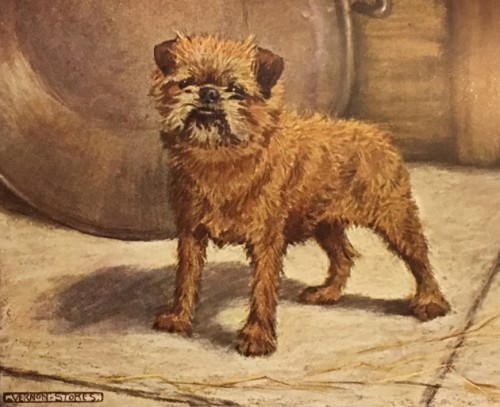
The sight of a tongue hanging out a dog’s closed mouth may strike some folks as cute, but it usually means something, and not always in a good way.
There are a few slang terms for a protruding tongue, including “lolling” tongue, “lame tongue,” and “peeking tongue,” and each has a reason for being. Missing teeth, of course, can account for a dog being unable to literally keep her tongue in her mouth, but we’d guess that the other most common cause is a bad bite. A “bad mouth,” is so objectionable in some breeds that the standards of these breeds include specific wording against them. The English Toy Spaniel standard, for example, states that, “a hanging tongue is extremely objectionable.” The Shih Tzu’s standard is another one: “Teeth and tongue should not show when mouth is closed.” Here’s one more: “Neither teeth nor tongue should show when the mouth is closed,” from the Brussels Griffon standard.
Missing teeth is one thing when it’s due to old age, injury or dental health, but a hanging tongue due to a badly over-or-undershot mouth or wry bite is quite another. In some breeds, dental structure is among their most defining characteristics, but more than that, bad bites cause difficulties with eating and grasping, while some breeds rely on their bites to do their jobs. Two illustrations of the latter:
- The Otterhound (whose bite may be the most unique among hound breeds). From its breed standard: The jaws are powerful and capable of a crushing grip.
- From the Australian Cattle Dog standard: The teeth, sound, strong and evenly spaced, gripping with a scissor-bite, the lower incisors close behind and just touching the upper. As the dog is required to move difficult cattle by heeling or biting, teeth which are sound and strong are very important.
Some abnormal bites have been proven to be genetically influenced, so the issue is of great importance to a responsible heritage breeder.
Not everyone who reads our site is a show fancier, and the video below from the AKC’S website is for you. Getting your dog accustomed to having his mouth and teeth handled is important. It allows you to brush his teeth, examine his gums and tongue, and may save his life if you encounter an anomaly and need to show it to a vet.
[iframe id=”https://www.youtube.com/embed/Qw8M7ewOyX0″]
Image of a Brussels Griffon by G Vernon-Stokes
